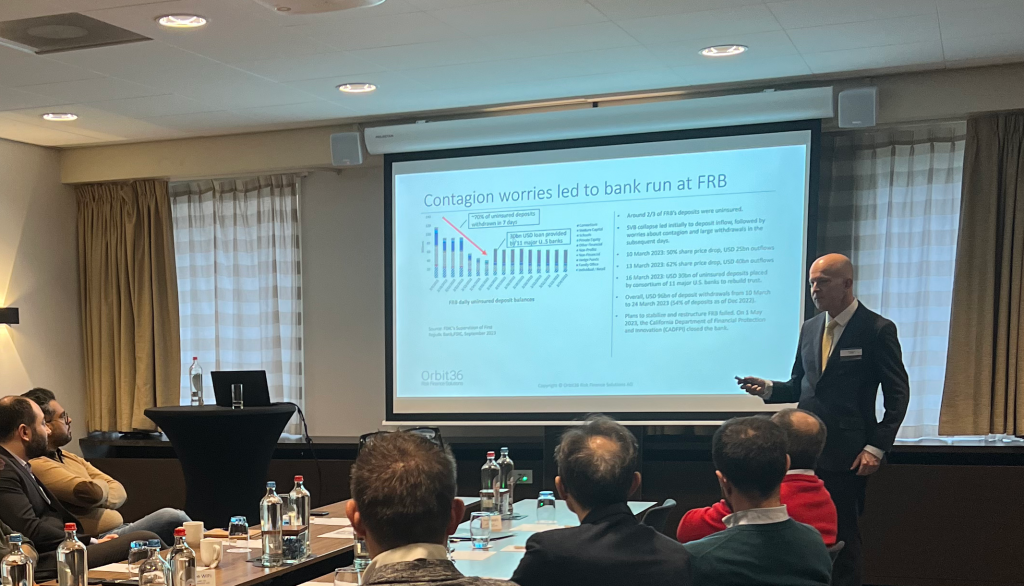Orbit36 workshop at banking book risk management conference Amsterdam

Yesterday, I returned from the 7th annual banking book risk management conference in Amsterdam, where I had the pleasure to led the post-conference workshop.
We talked about the implications of the recent bank failures on the future regulation and we had engaged discussions on the replication strategy for Non-Maturity Deposits (NMDs).
A few key takeaways:
- Large unrealized losses can undermine the trust in a bank. Avoiding large declines in Economic Value of Equity (EVE) is therefore crucial.
- There is an increased focus of regulators and banks on adverse impacts on Net Interest Income (NII)
- European Banks are subject to the IRRBB Supervisory Outlier Test (SOT), which limits changes in EVE to 15% of Tier 1 and changes in NII to 5% of Tier 1 under a 200bps parallel shock scenario
- Sometimes, ΔEVE and ΔNII can go into different directions, which makes the management of the two measures tricky
- An Orbit36 analysis on the replication assumptions of savings accounts in the Swiss market shows a wide dispersion. The different duration assumptions impact the individual banks’ competitiveness in the savings market
- A reality check revealed that the repricing duration assumptions used by some banks in Switzerland were too aggressive in the current rate hiking cycle
- The linear modelling of NMDs is convenient, but does not reflect the real behaviour of NMDs. Orbit36 has developed a non-linear modelling approach as a possible alternative which allows to incorporate withdrawals and switches into term-deposits.
In the workshop, we also explored how a Funds-Transfer-Pricing (FTP) framework can be implemented for active balance sheet management which sets the business the right incentives
- The main purpose of FTP is to steer the balance sheet. While conceptional rigor is required, the use of business judgement is sometimes unavoidable
- FTP should be regularly discussed in the ALCO, involving the business at a high seniority level
- Capital allocation and FTP need to be well aligned to avoid possible gaps or double counts
- The interest spread costs for capital instruments (AT1, MREL, TLAC) should not be incorporated into FTP, since the costs are driven by RWA or LRD rather than notional amounts
In the main conference, the key topics were
- Ownership of IRRBB models, business (1st line) vs. treasury/risk (2nd line)
- Pricing of deposits in the current rate cycle (observed deposit betas/passthrough rates)
- Management of IRRBB under EBA guidelines with SOT based on ΔEVE and ΔNII
- Treatment of Equity in IRRBB – highly controversial and different regulatory guidance (e.g. EBA vs. UK PRA)
I am looking back to a three great conference days and I would like to thank MarcusEvans for the excellent organization and the renewed invitation.
